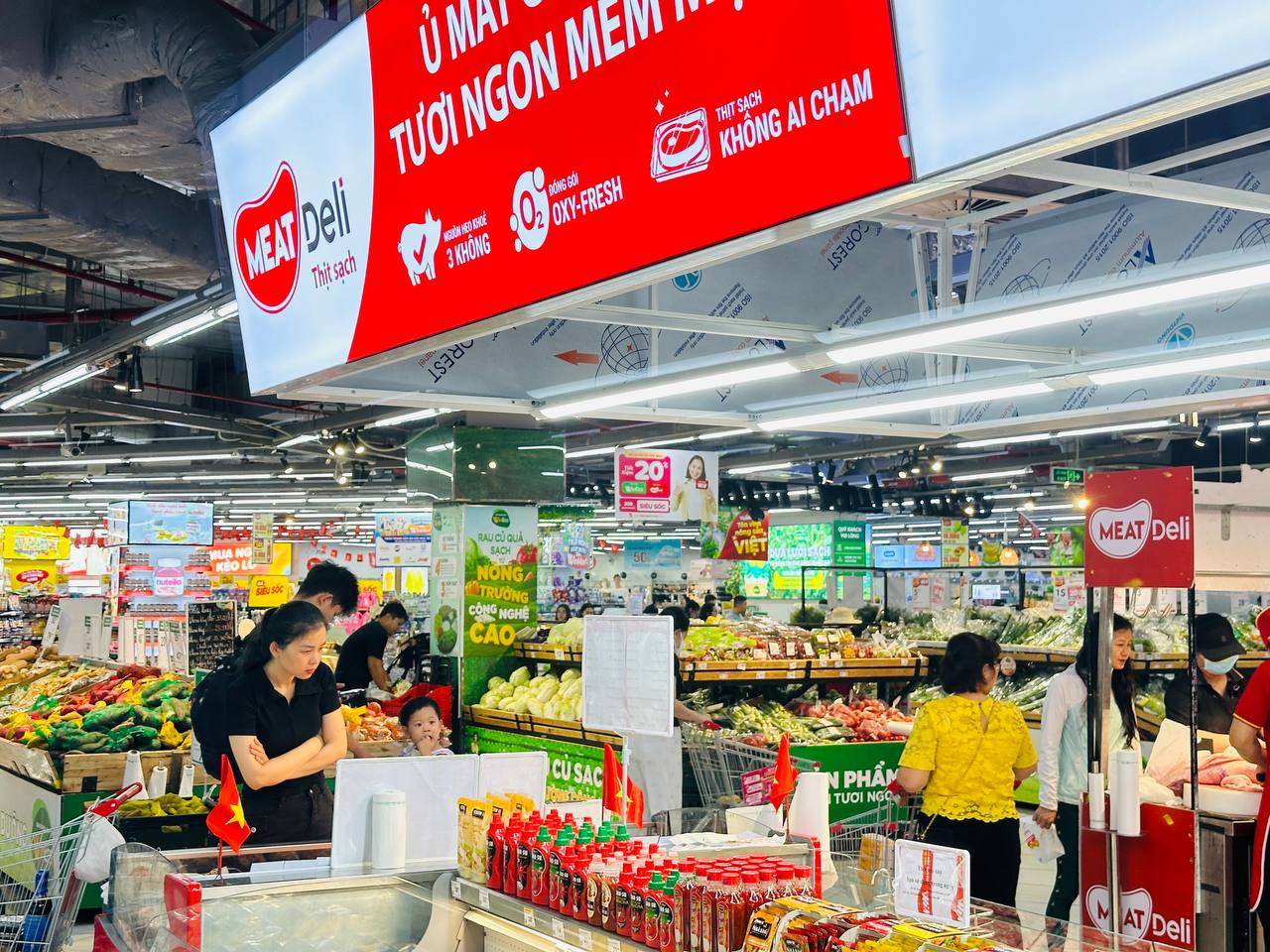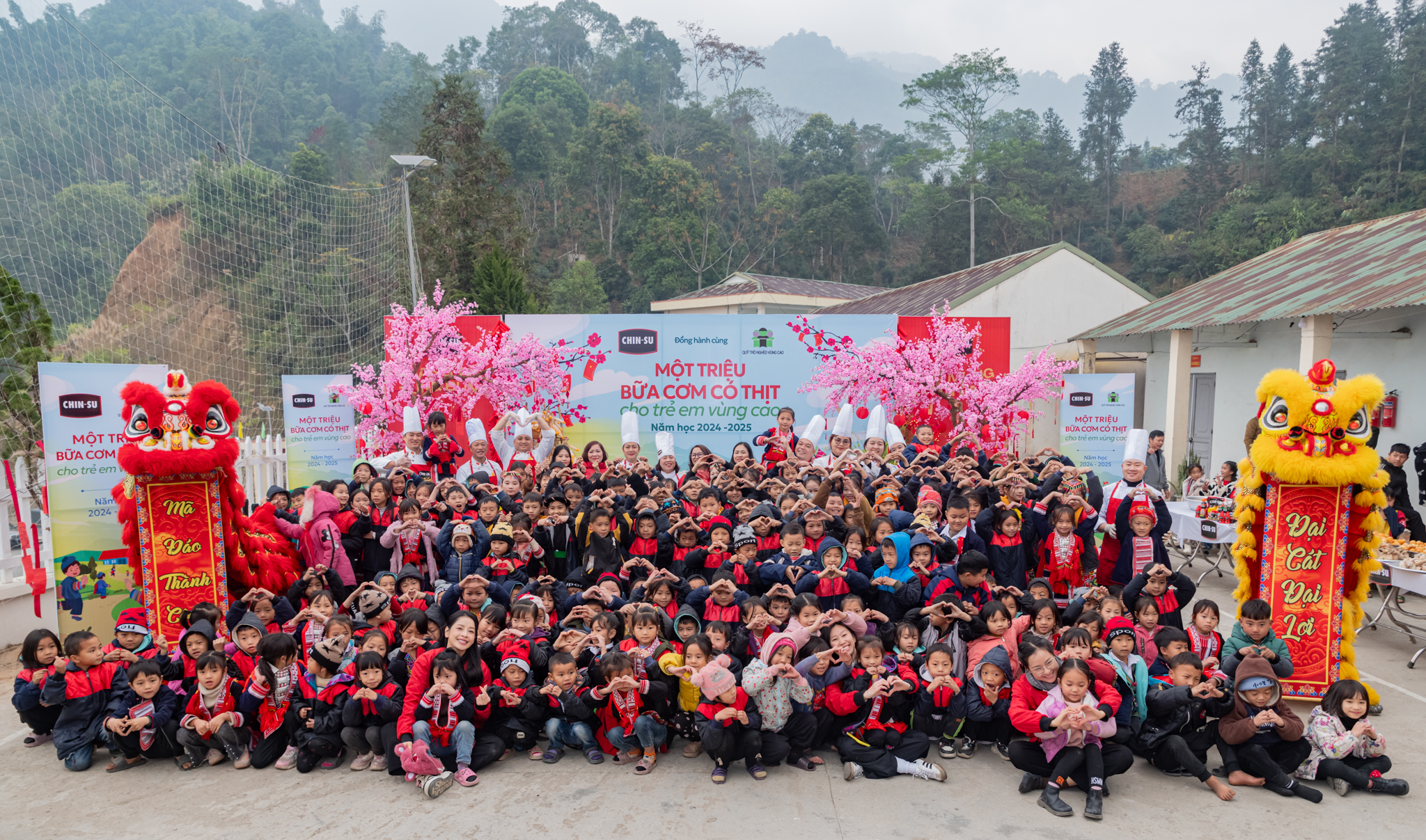The program, organized by Investment Bridge Magazine, was assessed by HSBC Vietnam, PwC, Schneider Electric, and the Circular Economy Institute. The evaluation criteria focused on governance effectiveness, social and environmental impact, and long-term value creation capacity.
A Masan representative stated that this is the 4th consecutive year the company has been listed in the rankings, recognized in two key categories: excellent corporate governance and outstanding CSR (Corporate Social Responsibility).
 |
Masan representative (center) receives the "Top 50 Sustainable Businesses" award. Photo: Masan |
Masan representative (center) receives the "Top 50 Sustainable Businesses" award. Photo: Masan
Masan, one of Vietnam's leading consumer and retail companies, operates with the philosophy of "doing well by doing good." The group aims to provide quality essential products and services, catering to the diverse needs of over 100 million consumers in Vietnam and internationally.
Masan's ecosystem comprises member companies and brands operating in various high-growth sectors: Masan Consumer (Chin-Su, Nam Ngu, Omachi, Wake-Up 247); branded meat - Masan MEATLife (MEATDeli, Ponnie, Heo Cao Boi); retail chain - WinCommerce (WinMart, WinMart+); tea and coffee chain Phuc Long Heritage (Phuc Long); and Masan High-Tech Materials.
Throughout its development journey, the company has integrated sustainability into its business strategy, aiming to balance financial growth with environmental, social, and governance (ESG) responsibilities. This approach is implemented through activities such as product innovation, supply chain management, adherence to safety standards, and long-term community initiatives.
To enhance synergy, Masan established a group-level ESG Committee in 2023 to coordinate and monitor implementation across its ecosystem. The company's sustainable development framework is based on three pillars: promoting innovation and sustainable growth; caring for the environment and community; and earning the trust of employees and customers.
These standards align with international standards such as the United Nations Sustainable Development Goals (SDGs) and IFC Performance Standards. Through this, the company aims for efficient operations coupled with long-term environmental and social responsibility.
 |
Consumers selecting the company's products. Photo: Masan |
Consumers selecting the company's products. Photo: Masan
Masan boasts a multi-sector ecosystem with prominent brands like Chin-Su, Nam Ngu, Omachi, MEATDeli, WinMart, Phuc Long, and Masan High-Tech Materials. The group pursues a "doing well by doing good" strategy, focusing on providing essential products for over 100 million consumers domestically and internationally.
In 2023, Masan established a group-level ESG Committee to coordinate the implementation of its sustainability strategy across the ecosystem. The development model rests on three pillars: innovation and sustainable growth; environmental and community care; and building trust with employees and customers. The company's activities adhere to international standards such as the UN's SDGs and IFC Performance Standards.
In 2024, 100% of Masan's factories achieved international food safety certification, and the renewable energy usage rate exceeded 25%. The percentage of women in mid-level management and above reached 43%, representing 62% of the total workforce. Masan also organized over 2,500 internal training sessions with 58,000 participants.
 |
The group's "One Million Meals with Meat" community program. Photo: Masan |
The group's "One Million Meals with Meat" community program. Photo: Masan
Regarding community activities, the group allocated over 144 billion VND for education, healthcare, and nutrition programs. Masan Consumer alone implemented 9 programs with a total budget of over 25 billion VND. Member companies like Masan MEATLife, WinCommerce, and Masan High-Tech Materials also actively participated in their own ESG initiatives.
In Nghe An, the pig farm system utilizes biogas technology, generating 3.67 million m3 of methane for on-site electricity production, contributing to cost reduction and emission reduction. In the retail sector, WinCommerce promotes the use of biodegradable bags at points of sale. Masan High-Tech Materials collaborated with the UFU Institute (Germany) to pilot grow acacia hybrid trees in post-mining areas, with the potential to absorb over 170 tons of CO2 per hectare after 6 years.
A group representative stated that ESG is not a short-term campaign but a core operational principle. "We aim to be a company that links growth with social responsibility—a factor increasingly important in attracting sustainable investment," they said.
Hoang Dan












